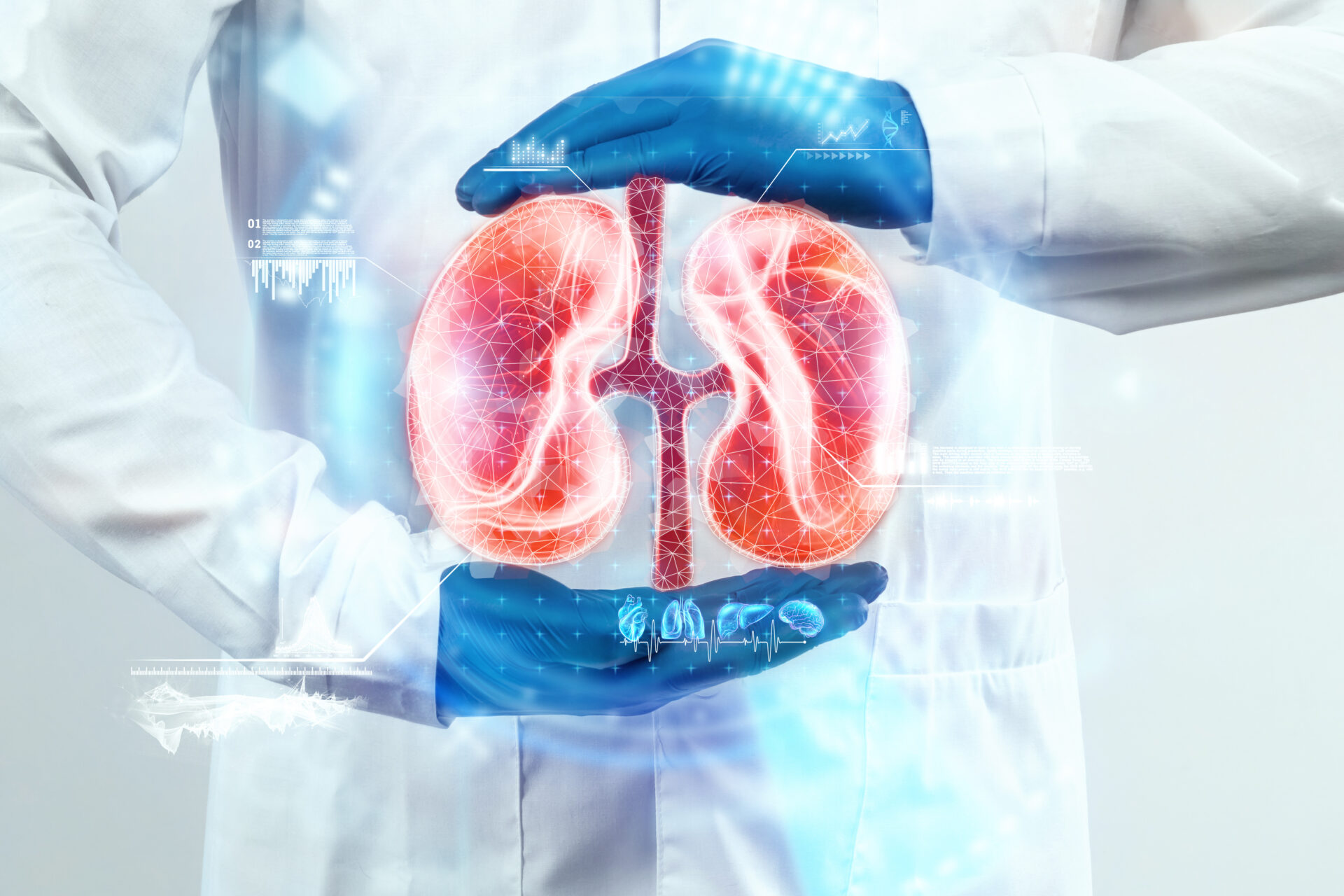Understanding Stage 5 Kidney Disease
Stage 5 kidney failure doesn’t have to impact your total quality of life.
If you or a loved one are experiencing stage 5 kidney disease symptoms or need personalized care to manage your diagnosis better, we are here to help you.
Here, we explore the definition and diagnostic criteria for Stage 5 chronic kidney disease, its effects on the body, CKD stage 5 life expectancy, and the treatment choices that can help individuals navigate this challenging diagnosis.


What is End-Stage Renal Disease (ESRD)?
End-stage renal disease (ESRD), often referred to as stage 5 kidney disease, is the most advanced and severe stage of chronic kidney disease (CKD).
In ESRD, the kidneys have lost nearly all their ability to function effectively. This is a critical state where the glomerular filtration rate (GFR) typically falls to less than 15 milliliters per minute, indicating severely limited kidney function.
At this stage, the kidneys can no longer effectively filter waste products, excess fluids, and electrolytes from the blood. As a result, waste products and extra fluid accumulate in the body, leading to various symptoms and complications.
Individuals with ESRD often experience high blood pressure and are at an increased risk of cardiovascular diseases like heart attacks and stroke. This is due to fluid and electrolyte imbalances and the kidneys’ role in regulating blood pressure.
ESRD can also lead to anemia because the kidneys produce erythropoietin, a hormone that stimulates red blood cell production. With reduced functionality, erythropoietin production decreases, decreasing red blood cell count and causing anemia.
Individuals often require ongoing CKD medical treatment to manage ESRD and maintain overall health. The management of ESRD, whether through dialysis or transplantation, can significantly impact a person’s quality of life.

Stage 5 Kidney Disease Causes & Risk Factors
The primary causes and risk factors for Stage 5 Kidney Disease include:
- Diabetes: High glucose levels in the blood can damage the small blood vessels in the kidneys over time, leading to a condition known as diabetic nephropathy.
- High Blood Pressure (Hypertension): Chronic, elevated blood pressure can damage the small blood vessels in the kidneys and accelerate the loss of kidney function.
- Glomerulonephritis: inflammation of the glomeruli, the tiny filtering units within the kidneys, can result from infections, autoimmune disorders, or other underlying medical issues leading to kidney failure.
- Polycystic Kidney Disease (PKD): PKD is a genetic disorder where fluid-filled cysts develop in the kidneys. These cysts can progressively enlarge, displacing healthy kidney tissue and causing damage.
- Certain Medications: Nonsteroidal anti-inflammatory drugs (NSAIDs), certain antibiotics, and some prescription painkillers can harm the kidneys if used excessively or for extended periods.

CKD Stage 5 Symptoms
Common signs and symptoms include
- Fatigue
- Weakness
- Shortness of breath
- Swelling
- Nausea
- Decreased urine output

Stage 5 Kidney Failure Treatment Options
Stage 5 kidney failure requires intensive and ongoing medical intervention.
The primary treatment options for managing this advanced stage of kidney disease include dialysis and transplantation.
Kidney Dialysis
There are two main types of dialysis for ESRD.
1. Hemodialysis
This type involves using a dialyzer to filter blood outside the body. Blood is removed from the patient’s body, cleansed through the dialyzer to remove waste and excess fluids, and then returned to the body.
Hemodialysis is performed in a dialysis center, and patients typically require several weekly sessions. Qualified patients can also be trained to perform hemodialysis at home, which allows more flexibility in scheduling their treatments.
This dialysis type is a home-based treatment option. It utilizes the peritoneum, a membrane in the abdomen, to filter waste and excess fluids. A dialysis solution is introduced into the peritoneal cavity, and the peritoneum acts as a natural filter.
This treatment can be done daily, and patients have more flexibility with their schedule than with hemodialysis.
Kidney Transplantation
A kidney transplant is the most effective long-term treatment for ESRD and provides the best quality of life and survival rates. In this procedure, a healthy kidney from a living or deceased donor is surgically implanted into the recipient’s body. The transplanted kidney takes over the function of the failed kidneys.
It is important to understand that a suitable donor and lifelong immunosuppressive medications are needed to prevent rejection for all kidney transplants. The process is a significant and life-changing decision for those who qualify and can lead to a substantially improved quality of life.

Managing Chronic Kidney Disease: Stage 5
End-stage renal disease is challenging because it represents the most advanced and irreversible stage of kidney failure.
At this point, treatment focuses on managing the condition and replacing lost kidney function.
It is crucial to understand that early intervention and effective management of underlying conditions, such as diabetes and high blood pressure, can help slow the progression of CKD and potentially prevent its advancement to Stage 5.

Stage 5 Kidney Disease Life Expectancy
While ESRD is a severe and life-altering condition, individuals diagnosed with this stage of kidney disease can still lead fulfilling lives with the appropriate medical care and support. Life expectancy can vary significantly among ESRD patients.
Factors affecting life expectancy with stage 5 kidney failure include:
- Age: Younger patients often have a better long-term outlook, as their bodies are generally better equipped to tolerate the demands of treatments. Older individuals, particularly those with multiple coexisting health conditions, may have a more limited life expectancy.
- Overall Health: If an individual has well-managed conditions like diabetes and hypertension, it can positively impact their prognosis. In contrast, individuals with a history of cardiovascular disease, infections, or other chronic illnesses may have a more challenging road ahead.
- Access to Adequate Treatment: Timely access to appropriate medical care and treatment options like dialysis and transplantation can influence life expectancy.
- Adherence to Medical Recommendations: Taking prescribed medications and following treatment regimens, dietary restrictions, and lifestyle changes are essential.
With advances in medical care, individuals with ESRD can live for many years, and some may even lead full lives with the appropriate treatments.

Stage 5 CKD Management and Quality of Life
Managing stage 5 kidney disease involves medical treatments like dialysis and transplantation and strategies to enhance your quality of life by alleviating symptoms and improving overall well-being.
Some key approaches include:
- Effective pain control with medications and therapies
- A kidney-friendly diet with balanced essential nutrients.
- Supervised exercise to enhance physical and emotional well-being
- Mental health assistance and support groups to manage stress and emotional challenges




